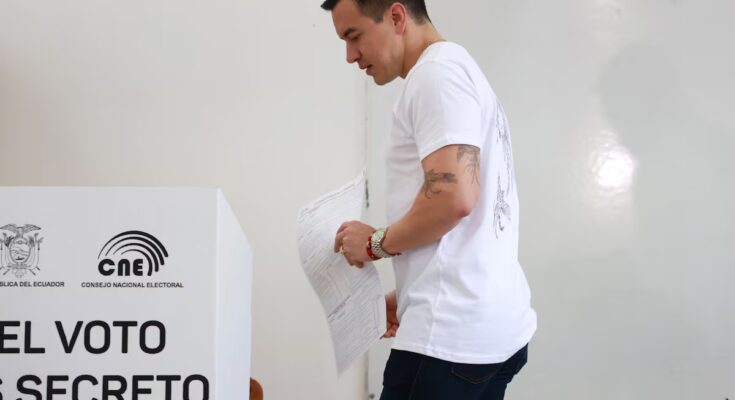The President of Ecuador, Daniel Noboa, has decided to reorganize his ministerial cabinet, making changes to seven state portfolios. The changes come two days after citizens overwhelmingly rejected their proposals to amend the Constitution and amid a climate of official secrecy. Additionally, the president is on an official two-day trip to the United States, of which no details or schedule have been revealed, further fueling uncertainty about the political direction of his term.
One of the most significant changes is the exit of Zaida Rovira from the Ministry of Government, a key position in the Noboa administration, as she was in charge of managing relations with other political and social actors, as well as opening channels of dialogue in moments of tension. Rovira managed the indigenous strike – the longest in the country’s history – which lasted 31 days in the province of Imbabura, in the north of the country. The strike culminated in a resolution imposed by the government under the threat of military and police repression. Rovira does not completely abandon the Executive. The president reappointed her to her previous position as minister of human development.
In his place Noboa appointed Álvaro Rosero, previously director of Exa radio in Quito, where his political statements were often in line with the governing party. Rosero, whose career is marked by his closeness to the world of the media, will have to take on the complex task of calming the political waters and overcoming the growing polarization that intensified after the defeat in the referendum.
The results were clear: 60% of voters rejected the installation of foreign military bases in the country, while 62% were against the convening of a new Constituent Assembly to write a new Constitution. The defeat was also widespread in the other two issues relating to the elimination of public funding for political parties and the reduction of the number of legislators.
Another notable change in the government is the new functions of Vice President María José Pinto in the Ministry of Health, one of the portfolios most overwhelmed by the crisis. Pinto, who until now had focused on issues such as mental health, bilingual intercultural education and combating child malnutrition, now takes charge of a sector ravaged by supply shortages, budget cuts and corruption that is dying in public hospitals.
The security and financial bloc remains intact, despite the country going through an unprecedented security crisis. The violence, with a new homicide record of more than 7,000 killed, has overwhelmed the government’s ability to ensure peace and order, the main concern of citizens.
The changes also include adjustments in other key portfolios, such as education, agriculture, risk and labour, where new authorities have been appointed. Furthermore, the spokesperson of the Presidency, Carolina Jaramillo, who was supposed to improve official communication, presented her resignation, which was accepted by the president.
The official trip to the United States, announced in a surprising way through a presidential decree, leaves open the possibility that the president is managing – once again – the political crisis from outside the country.



